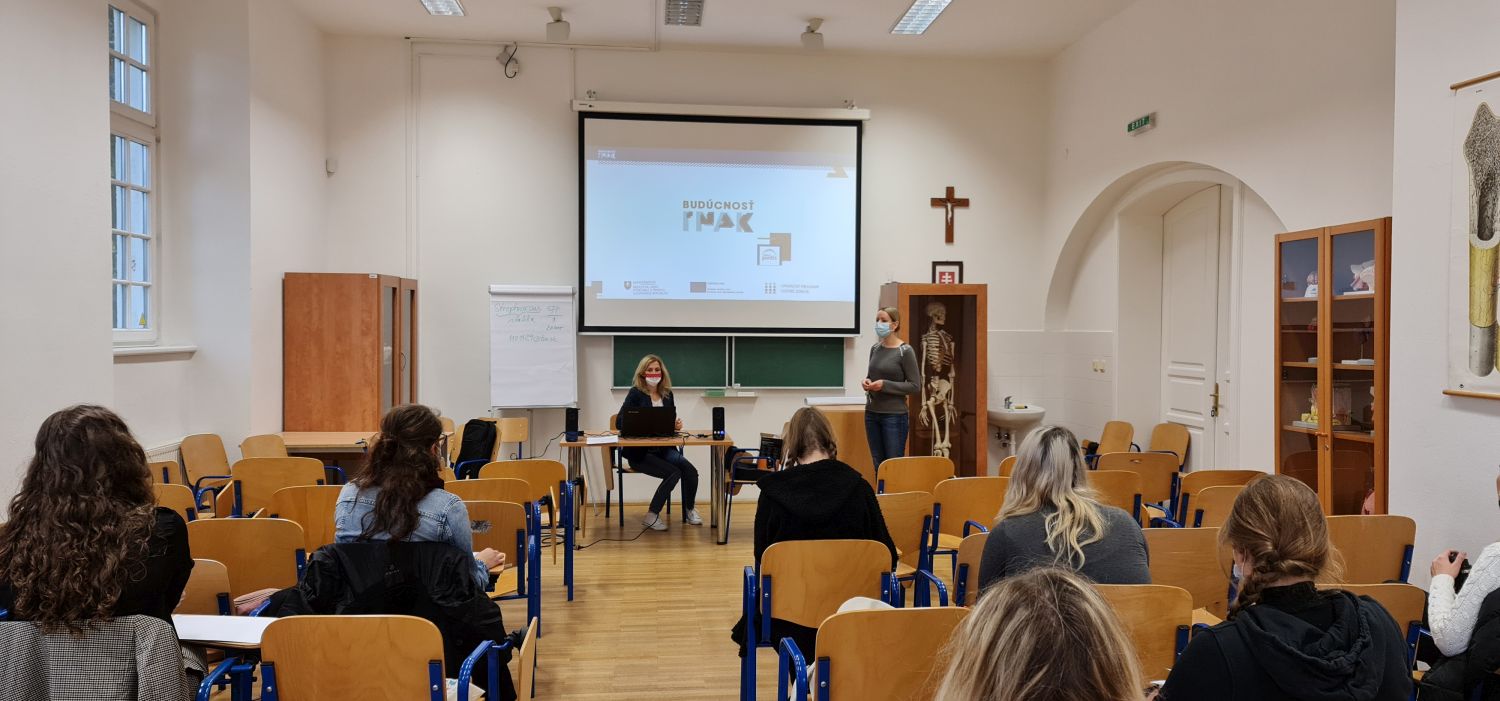“It makes us better teachers,” claim the graduates about the Open Future student programme
It enriched me both professionally and personally. Most of the knowledge was beyond what we get at university. It motivated me to be a better teacher. The course forced me to reflect on myself, but mostly filled the gaps between theory and practice. These are some of the reactions from participants in the informal education training that we prepare for university students in the Open Future. During the intensive spring weeks, 16 new students successfully completed the programme.
Within our programme for students, university students interested in working with youth learn about innovative educational approaches and informal education. They discuss how to create an inclusive environment, work with pupil motivation and group dynamics in the classroom, or how to prevent problematic behavior.
“You will deepen your knowledge, revise some things you may already know, and you will surely learn a lot of new things. At the beginning, I was afraid of what it would be about, whether we would have to write extensive papers, tests, and so on. But in reality, the worries were completely unnecessary. I looked forward to the meetings, we could share how we felt, we shared updates and exchanged opinions during our training hours,” says Erika, a student from Trnava University.
Participants particularly emphasised in the survey after completing the training the understandability with which the topics were presented, the great approach of the trainers, and ample space for questions, opinions, and discussion.
“You will understand a lot that may not have completely made sense to you until now. It’s filling in the gaps between theory and practice,” adds training graduate Aneta. She claims that her education has given her practical skills that she will use at work, as well as volunteering. “I also appreciate that, as an introvert, I learned to be braver in discussions and activities.”
How does the programme work?
The education consists of 12 hours of free training. Students will expand their knowledge and skills on topics such as:
- informal education,
- practical inclusive education,
- group dynamics,
- positive behaviour management and a respectful approach.
In addition, the education includes four short tasks for individual work, self-reflection, and ample space for questions.
The lecturers who will guide the students through the individual blocks are top experts in the field of education:
- Viktor Križo from IncluCentre, who has worked as a special educator for 12 years, focuses on humanistic psychology and its implementation into the school environment within the Centre for Inclusive Education;
- Anna Symington-Maar, who co-founded the leadership programme Teach for Slovakia and the civic association Rozmanita, and has been dedicated to inclusive education for over 10 years;
- Kristína Uhlíková, who worked at Teach for Slovakia;
- Martin Kuruc, who works at the Faculty of Education at Comenius University and is long-term dedicated to the development of soft skills and group work.
And what do participants in our programme most often have to deal with? Senior Programme Manager of Open Future, Miriam Šelepová, states that it is unequivocally the transition to an informal type of education.
- 91 graduates in less than 4 years of the programme,
- 49 of them were from Trnava University, 34 from Matej Bel University in Banská Bystrica,
- 21 graduates entered the second phase of the programme directly in our centers.
“Students are used to an educational process that is typical for institutions in our school system, but they quickly get used to the informal and friendly atmosphere at online meetings, using first names, and so on,” she says. Participants always have space for feedback at the end, even regarding the content of the training.
“Every semester we consider adding new topics, but the last time, the students told us that the proposed concept fully suited them,” says M. Šelepová, continuing: “Previously, for example, they asked for topics such as working with emotions and mental health. We are developing these in the second phase of the programme. However, we are considering adding the topic of working with motivation within group dynamics into the first phase.”
The second phase
After completing the training with us, graduates can continue to collaborate. They thus move to the second phase of the programme, where they get the opportunity to participate in activities directly in the Open Future centres, where children from the second stage of primary schools learn to develop entrepreneurship, digital and soft skills. Currently, three centres are operating, located in Trnava, Zvolen, and Bratislava.
Who can get involved?
In the Open Future, we collaborate with Trnava University, Matej Bel University in Banská Bystrica, Comenius University in Bratislava, and the University of Prešov. The training is usually recognised by the students’ home university as pedagogical practice or part of a subject. The programme takes place twice a year, always at the beginning of spring and autumn.








